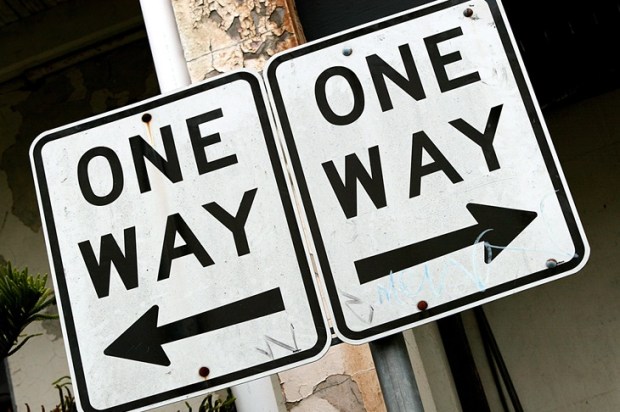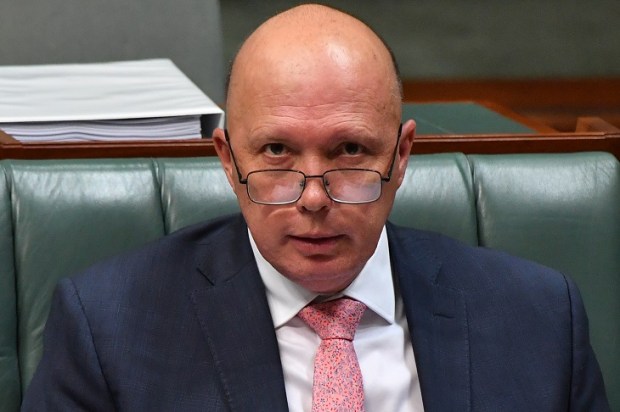Yesterday on Twitter, Guardian Australian Arts writer Ben Eltham, possibly bored from writing about culture in a country that doesn’t have much, doxed controversial former-Liberal politician Craig Kelly. He tweeted out Kelly’s mobile phone number and encouraged his Twitter followers to message him and tell him what they all think of a spam text Kelly himself had issued promoting his new affiliation with the United Australia Party.
To be fair, Eltham did follow-up tweet that he always tries to be civil. But that’s the thing when you unleash a Twitter pile-on – who knows where it might end (and more to the point, where’s the fun in that)?
So the story moves along and here we are today and Eltham seems blithely unconcerned at what all yesterday’s fuss was about only stopping to note that he has now been called a c#nt for what he has done in an overnight tweet from the usually mild-mannered Warren Mundine.
Ironically, and displaying the collective hubris that seems peculiar to the Left, his Twitter fans rather than noting Eltham’s own behaviour focuses their outrage instead on Mundine’s swearing, some saying they have reported him both to Twitter and the SBS (where Mundine is a board member), because public figures shouldn’t post things like that as it’s really, really inappropriate and they’re really, really offended.
No doubt reading the room, as edgy arts and culture writers always do, Eltham likely thinks he’s on a winner, relying on the fact that many people don’t like Kelly and his views from climate change to covid cures; and even more people – regardless of their politics — dislike spam messaging and calls, whether it be from political parties (yes, they all do it), energy or phone companies.
But the self-justifying faux outraged posts of his followers suggesting they have somehow been violated and they can’t believe how Kelly possibly got ‘my phone number’ are disingenuous as any sentient adult (especially anyone with an interest in politics) knows how marketing companies annoyingly manage to get hold of people’s details and create mailing lists these days.
Spam marketing is a modern scourge — or a first world problem, depending on how you look at it. (I wonder if the Taliban will ban it?). More should be done to stop it, etc. But that’s hardly the point, and lets face it, Eltham’s Twitter followers weren’t really trying to run some brave campaign against the forces of contemporary mass marketing – they just wanted to vent and stick it to a controversial right-of-centre political figure and make sure everyone else in their group see them doing it. Think of it as a form of Performative Art also known as Burning Pram Syndrome.
What they are really channelling (and you can see it in some of his followers’ Tweets) is that self-righteous left moralising that argues what we’ve done might be wrong but it’s ok because it’s for the greater good and given their political views they deserve it anyway. This view was seen with Egg Boi who was deified for egging a far-right political figure despite the physical assault because after all, he was a far-right political figure.
Regardless of the banality, this episode does raise some interesting questions. After all, Eltham, as an arts writer is unlikely to have had Kelly’s mobile number handy – who gave it to him? Did he search it up or was it another Guardian journalist? If so is this a warning to any public figure dealing with Guardian journalists that you should be very careful what personal information you give them?
The Guardian Australia (and other outlets who also published the number along with inane suggestions on other ways to ‘spam’ Kelly) may also want to share their view on whether publishing the mobile numbers of public figures on social media and encouraging their audience to harass them is journalistic best practice (and does this depend on whether or not they like that particular public figure, and what does this say about any pretence of political impartiality).
We know the ABC doesn’t have much of an issue with how their journalists behave on social media but shouldn’t The Guardian hold itself to a higher standard?
Michael Scammell is a freelance writer. He writes at https://mdswords.wordpress.com and Tweets at @MichaelScammell.
Got something to add? Join the discussion and comment below.
Get 10 issues for just $10
Subscribe to The Spectator Australia today for the next 10 magazine issues, plus full online access, for just $10.

























Comments
Don't miss out
Join the conversation with other Spectator Australia readers. Subscribe to leave a comment.
SUBSCRIBEAlready a subscriber? Log in